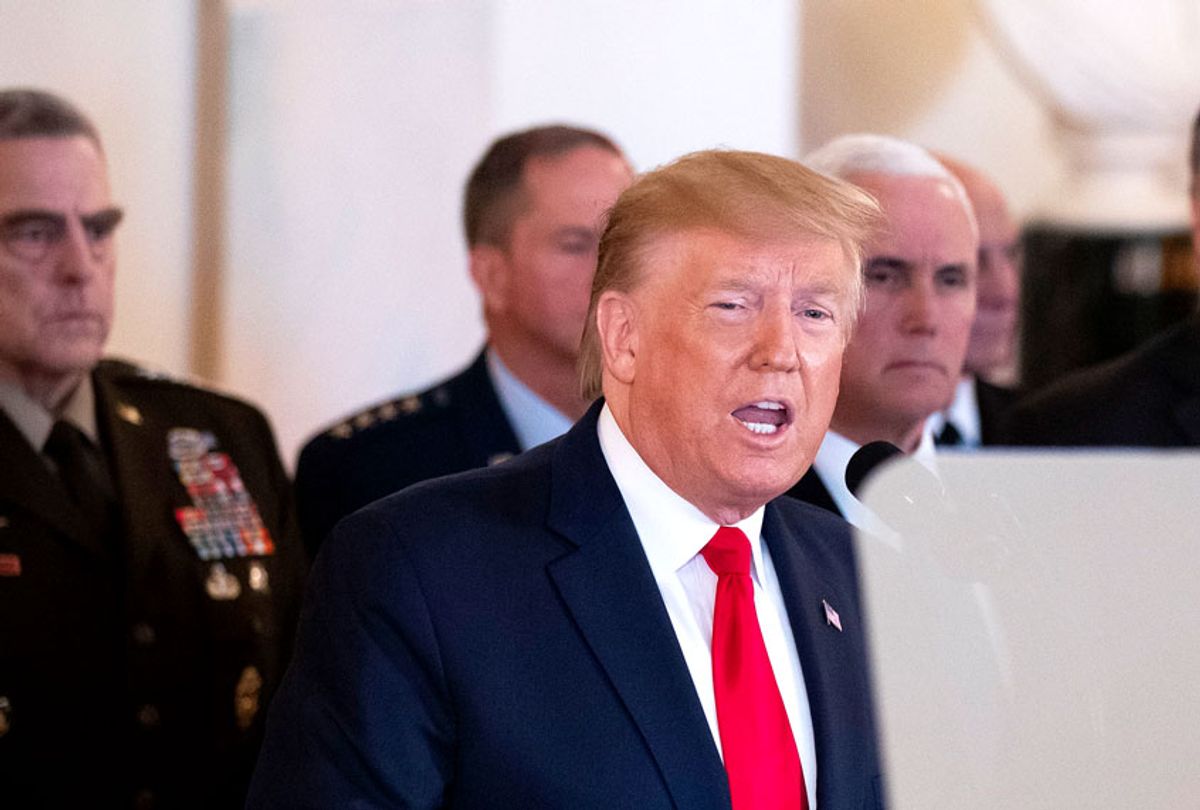
This whole crisis with Iran was precipitated by Trump's decision to kill Iraqi Gen. Qassem Soleimani. So what do we really know about how Trump made that decision?
We know what Trump has said. We also know:
Official explanations have thus far been insufficient and lacking in credibility.
- Trump is an inveterate liar, with very little public credibility.
- So far, nobody in the administration has publicly released any credible evidence to support any of their explanations.
- There is no evidence that Soleimani had suddenly become a bigger threat.
There's no evidence of a normal deliberative process.
- Trump does not pay attention to details.
- He does not display any appreciation for strategic planning
- The support system of knowledgeable, experienced people to which a president would normally turn for advice in such a circumstance does not exist.
- There is no evidence that any normal procedures were followed in this process.
Reporting suggests Trump made his decisions impulsively, rather than strategically.
- He has a history of making decisions impulsively.
- He was angry about negative press reports related to his decision last year to call off an airstrike against Iran at the last minute, which he felt made him look weak.
- He was angry about Iranian-backed attacks on the U.S. embassy in Baghdad.
- Some officials — presumed to be Secretary of State Mike Pompeo and Vice President Mike Pence — goaded him by telling him the Iranians would consider him weak if he didn't act forcefully.
- There was apparently no discussion about what would happen after the attack.
Other than Trump supporters, pretty much everyone agrees this was a very bad, inflammatory decision.
- None of the explanations provided by Trump administration officials provide a legitimate, legal motive under U.S. or international law for the assassination of a high-ranking government official.
- Killing Soleimani was never pursued in the past because it was considered too provocative.
- Iran experts have been overwhelmingly critical of Trump's action, calling it hugely destabilizing and likely to lead to all-out war.
- European and other international allies consider Trump unhinged and have called for de-escalation.
And Trump had an obvious ulterior motive.
- Looming over it all is the obvious fact that this provides a distraction from impeachment, which Trump is very angry about.
So, journalists, if you assert something like this:
Trump has said that he acted because Soleimani "was plotting imminent and sinister attacks on American diplomats and military personnel" and that his goal was to "stop a war" not "start a war."
You absolutely owe it to readers to say something like this:
Trump, however, has a long history of making false statements, and neither he nor anyone in has administration has supplied any evidence to support his explanation.
What we do know is that Trump is notoriously uninterested in intelligence briefings, has shown no interest in strategic planning, has none of the trusted advisers and other resources presidents normally have when they make decisions like this, and there's no sign that there was any deliberative process.
We also know Trump has a long history of acting impulsively, based on hurt feelings. He was still angry about negative press reports related to a prior decision to call off an airstrike against Iran at the last minute, and two top officials told him he would look weak if he didn't act. There was apparently no planning for the inevitable Iranian response.
Trump's decision shocked Pentagon officials and outraged allies and Iran experts across the globe. The one thing it did accomplish was to distract from Trump's impeachment and upcoming Senate trial — inevitably leading to widespread suspicion that this was a factor in his decision-making process.
For good measure, at some point it's worth reminding readers that baldly lying about war was standard operating procedure for the U.S. governments long before Trump got here, as most recently exemplified by the Washington Post's Afghanistan Papers.



Shares